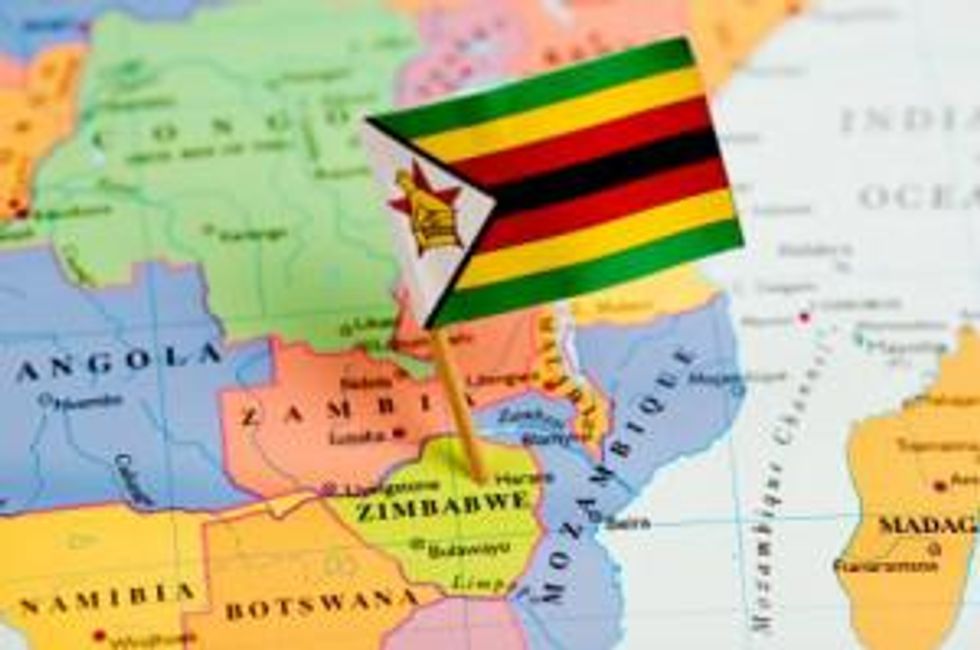Zimbabwe Announces Repossession of Zimplats’ Land
Zimbabwe is planning to repossess Zimplats’ land and distribute it to new investors.
Last week, Zimbabwe’s mines minister, Obert Mpofu, reportedly told the media that the government will be repossessing nearly 28,000 hectares of land from Zimplats Holdings (ASX:ZIM), a division of Impala Platinum Holdings (LSE:IPLA,OTC Pink:IMPUY). Platinum prices rose as the announcement stoked supply concerns in the market, which is already expecting to see a deficit this year. But Impala claims it has heard nothing of the sort from the Zimbabwean government.
Mpofu announced that the repossession will take place “with immediate effect,” Bloomberg reported. He also said the land will be redistributed to new investors.
Further, the minister noted that the country has not realized significant value from the platinum sector beyond traditional statutory payments. “We can no longer continue having our minerals refined outside the country,” he declared.
Mpofu has therefore called upon Zimbabwe’s platinum miners to establish a platinum group metals refinery and submit implementation plans. The country reportedly plans to ban the export of raw platinum ore in 2015.
Over a week has passed since these announcements were made. Impala’s corporate relations executive, Bob Gilmour, told Silver Investing News that the company still has had no notification from authorities on the media reports.
It has been suggested that the land in question is the same turf that was included in a previous deal with the government. If so, Zimplats has long been willing to get rid it.
In 2006, the company agreed to release claims to 36 percent of its resource base on the Great Dyke. The land allegedly holds 99 million ounces of platinum, palladium, rhodium and gold, but the company said it is outside of its long-term expansion program of 1 million ounces per year.
The government was to provide fair value compensation for the land in the form of empowerment credits and cash. But Zimbabwe didn’t live up to its end of the deal and Impala is still waiting to be compensated.
Gilmour declined to confirm or deny whether Mpofu was referring to the same Great Dyke area. If he was, and Zimbabwe has repossessed it — or plans to — that will likely open up a much larger issue.
Last month, Impala signed a non-binding term sheet for a deal to sell 51 percent of its stake in Zimplats to indigenous entities in Zimbabwe to comply with indigenization laws.
One of the conditions precedent is an amendment of the 2006 release of ground agreement. Impala wants the indigenous entities to provide a payment of $153 million to satisfy the outstanding obligations. Taking this amount into account, Impala values the indigenization deal at $971 million.
However, Mpofu did not appear to set to offer any payment for the land to which he was referring.
“You can only compensate for land that has been bought. The ground belongs to Zimbabwe and there cannot be talks of compensation when the land belongs to you,” he said when announcing the repossession.
Indigenization is supposedly designed to empower blacks. But Tuesday, the MDC — a party in Zimbabwe’s coalition government — followed the nation’s finance minister and secretary general, Tendai Biti in calling for an investigation into the corruption associated with this initiative.
The MDC called the indigenization laws a skewed, inconsistent and disastrous policy that is “nothing but a massive cash cow for only well connected ZANU PF fat cats.”
Many were caught by surprise last month when even President Robert Mugabe took a strong stance against corruption, paving the way for an investigation of high-ranking members of his own party. They are accused of trying to extort about $750,000 from diamond miners.
With elections ahead, many have suggested that the move was a political stunt designed to drum up support for ZANU-PF. But according to the MDC, even if Mugabe wanted to run a clean ship, he is incapable.
“[T]here is absolutely no hope that the ageing Zanu PF leader still has the capacity to reign in his corrupt lieutenants leaving the nation at the mercy of the indefatigable corrupt barons. This clearly shows that Mugabe no longer has the capability and stamina to take this country forward,” reads the party’s statement.
This latest issue with Zimplats was good for metal prices. Platinum reached $1,729 an ounce on the news, states a market report from ETF Securities. However, for foreign investors it is one more reason for caution on a very long list.
“Although the measures are aimed at re-allocating assets to local businesses they highlight the uncertainty of operating in the African region,” ETF Securities added.
But Impala does not seem uncertain or deterred. Days after Mpofu’s announcement, the company released its interim results for H2 2012. The associated press release states that Implats takes a long-term view on the business and it will continue to invest in its growth project in Zimbabwe.
Securities Disclosure: I, Michelle Smith, hold no direct investment interest in any company mentioned in this article.
Related reading:
ZANU-PF Officials Accused of Defrauding Diamond Miners
Zimbabwe Tax Focus Could Pressure Ailing South African Producers
